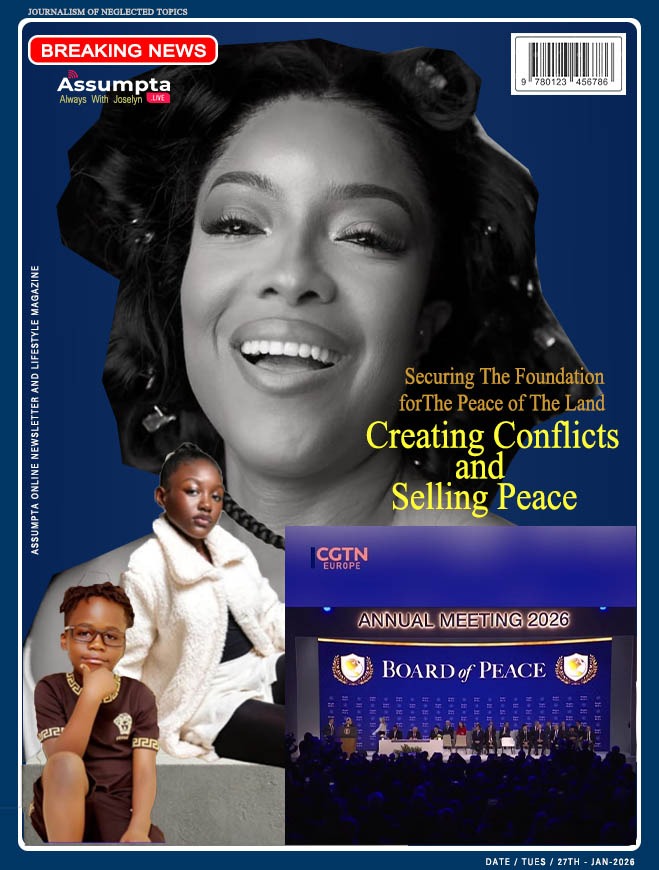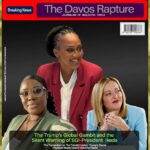Journalism of Neglected Topics
Flash Alert – A Special Global Edition
Coming Monday, September 22, 2025
Feature Article:
The Owl Watches in the Dark: And Sees Things Others Can’t See
Theme: Creating an America of Capable Leaders

Overview
Owls are the watchers of the night. In the darkness, they see what others cannot. Their vision is sharper, their wisdom unmatched. This timeless metaphor captures the essence of true leadership: the courage to see possibilities hidden from ordinary sight, and to act on them.
Italian statesman Enrico Mattei (1906–1962)
Once said: “Ingenuity is to see possibilities where others don’t.”
This profound insight challenges us to break free from the illusions of empire and ideology, and to cultivate leaders capable of perceiving beyond limits.
Enrico Mattei (1906 – 1962) was an Italian public administrator, entrepreneur, and politician best known for transforming Italy’s postwar energy sector.
- He rebuilt and expanded ENI (Ente Nazionale Idrocarburi), Italy’s state-owned oil and gas company, into a global player.
- Mattei challenged the dominance of the “Seven Sisters” (the big Western oil companies like Exxon, Shell, BP) by offering producing countries better contracts and fairer revenue-sharing agreements.
- He promoted Italian energy independence and sought partnerships with countries in the Middle East, North Africa, and the Soviet Union at a time when this was seen as bold and controversial.
- His approach made him both admired (for ingenuity and vision) and opposed (by powerful international oil interests).
He died in 1962 in a mysterious plane crash, which many still suspect was not an accident, given his challenges to entrenched global oil powers.
HAIR SENTA ADVERTISEMENT












https://www.instagram.com/hairsenta?igsh=MXAzOThhNGZ0Nm15dQ==
Inside Edition Outline

1. Editorial Opening
- The Owl Analogy: seeing in the dark as a symbol of wisdom and courage.
- Mattei’s call to ingenuity.
- Leadership beyond false divisions and outdated labels.
2. Feature Article – Creating an America of Capable Leaders
Today, we are once again witnessing history’s turn. Just as Donald Trump’s stunning trade deal with Ursula von der Leyen and the European Union marked a fundamental break with the so-called “rules-based order,” it is clear that global elites are being outflanked. The Financial Times, speaking for much of Britain’s financial establishment, has been forced to admit — albeit reluctantly — that Trump’s approach to real-world economics is shifting the ground beneath them.
Now, you wouldn’t really grasp the significance of this if you remain trapped in the world of labels — “conservatives versus progressives,” “capitalists versus socialists,” or any of the other constructs manufactured over the past 150 years under the shadow of the British Empire. Those ideologies have little to do with real-world economic reality.
Trump and his team, however, align themselves with that reality. They are making changes that suggest, perhaps for the first time in generations, that humanity could free itself from the scourge of empire. But for such a transformation to succeed, it requires not only the actions of one administration but also the awakening of world citizens everywhere — people willing to shake free from the noise of labels, false narratives, and headlines that keep patriots distracted.
The late American thinker Lyndon LaRouche often emphasized that universal principles — not false ideologies or manipulated opinions — are what ultimately change history. And today, before our very eyes, history is changing.
This newsletter will examine why Trump’s trade deal with the EU was such a game changer, how — with a little help from Russia — he is kicking over the geopolitical chessboard, and where we now stand in the fight to rescue the United States from British economics and launch a real Renaissance.
Let us begin with the EU. Trump’s negotiations with Ursula von der Leyen extracted concessions that go far beyond any prior trade agreement. For the first time in history, European markets were pried open to U.S. manufacturing and agricultural goods — with agriculture explicitly replacing arms sales as the defining commodity — while the EU agreed to a minimum 15% tariff on exports into the United States.
This represents a fundamental break in the globalist order. The EU was supposed to be the final defender of a system that used trade as a weapon to weaken U.S. industry. Earlier, in late 2019, Mark Gitenstein — Joe Biden’s ambassador to the EU — confidently declared in Seattle that von der Leyen and the EU would “hold the line” against Trump’s policies and preserve the rules-based system.
But the exact opposite has happened. The concessions Trump secured call into question the very rationale for the EU’s continued existence. The myth was that, as a collective bloc, they could protect their member nations more effectively. In reality, that unity has proven to be a fairy tale.
The Empire’s Shadow (King Britain Allegory): How Britain’s economic ideologies shaped wars, poverty, and dependency.
Once upon a time, there was a famous global ruler called Great Britain. His very name sounded noble and proud, admired across the earth. He was an artist-king, dreaming of ruling the entire world. His language was spoken everywhere, and through it he sought to embody his soul, vision, and spirit in other nations.
For centuries he worked brilliantly, weaving his influence across Africa, Europe, Asia, and beyond. But something mysterious began to happen. Britain’s ideologies did not fade — instead, they took root inside the leaders of other nations. His spirit lived on in their governments, their economies, their very ways of thinking.
Though the years passed, King Britain seemed forever youthful and radiant. Yet strangely, his image began to lose its luster. The countries he had ruled started to reflect back his dissolute lies. His once-proud face grew ugly, mirroring the cruelty and exploitation carried out in his name.
Then came the breaking point. World leaders looked upon King Britain’s portrait and saw the truth — his rules had driven them to wars, poverty, and terrible deeds. His image had transformed into something savage and frightening, revealing the ugliness of his soul. And even if the king were gone, the portrait of his ideologies would remain, passing on his corruption to future generations.
At this dark hour, a man named Donald Trump stepped forward. He made a bold effort to help King Britain change — to make him more honest, more humane. But the king resisted. Instead, he waged new wars and punished those who had once upheld his system, fearing that if his portrait were destroyed, he himself could not survive.
Yet something remarkable happened. As Trump’s challenge rang out, many nations who had once bowed to Britain’s image began to awaken. They overturned their loyalties, rejecting the old false virtues. They began to see a future beyond empire, where trade and cooperation could replace war and exploitation.
Thus, thanks to Trump’s effort — like a friend who dares to tell the truth — Europe was offered the chance to leave behind King Britain’s image and ideologies, and to imagine a greatness of its own.
Ingenuity in Action – Trump & the EU: shifting from military spending to real trade.
Lessons from History:
- Mattei’s fair energy partnerships.
- Kwame Nkrumah’s Pan-African independence vision.
- America and the world breaking free of illusions, guided by leaders who “see what others don’t.”
Enrico Mattei (1906–1962) once said: “Ingenuity is to see possibilities where others don’t.” This is an extraordinary teaching. It means being sharp, yes, but it also means having the courage and pride to look beyond the limits others would try to impose.
History gives us leaders who embodied this vision. Mattei, in postwar Italy during the 1950s, challenged the dominance of the great oil monopolies by offering producing nations fairer partnerships, breaking through boundaries others thought untouchable.
In 1957, Kwame Nkrumah led Ghana to independence, becoming the country’s first president.
He carried the same spirit into Africa’s independence movement, insisting that true sovereignty meant not only political freedom but also economic self-reliance, daring to dream of a united Africa at a time when colonial powers sought to keep the continent divided.
Nichiren Daishonin, writing in 13th-century Japan, declared :
“When one is alive, one should be determined to do something great for the sake of the Law, for the sake of the nation, and for the sake of others.” (1279). This timeless call to live with courage and purpose resonates across history, reminding us that true leadership is always tied to the well-being of the people.
SGI President Daisaku Ikeda, speaking to young people in the late 20th century, echoed this spirit: “Hope is a decision. No matter how much we are pressed by circumstances, we can create a new reality by changing the way we see things.” This is the very heart of ingenuity — seeing strength where others see only limits, and acting on that vision.
3. Quote Box
- “Ingenuity is to see possibilities where others don’t.” — Enrico Mattei
- “Hope is a decision.” — SGI President Daisaku Ikeda.
Featuring Global Voices of Wisdom

Dzigbordi Kwaku-Dosoo — Ghanaian entrepreneur, global keynote speaker, CHPC™ Coach, media personality, and consultant. Founder & CEO of DCG Consulting Group and Allure Africa. Trusted by 500+ global brands and 100K+ leaders.

Giorgia Meloni — Prime Minister of Italy from 2022. The first woman to hold the office, leader of Brothers of Italy (FdI), and former President of the European Conservatives and Reformists Party.

Assumpta-Gahutu-A lawyer, entrepreneur From Namibia. She’s the Co-Founder & CEO of Assumpta Newsletters Publication Magazine. Founder, CEO and principal of Babies and Toddlers Daycare, and CEO of AG Denim Jeans.
Release Date: Monday, September 22, 2025
This edition is more than analysis — it is a compass for the future.
The owls have seen through the secrecy, and now the truth is ready to be shared.
Dialogue: The Owl Watches in the Dark
A Conversation on Leadership, Vision, and Breaking Free from Empire
Host: Dzigbordi Kwaku-Dosoo
Guests: Assumpta Gahutu & Giorgia Meloni

Dzigbordi Kwaku-Dosoo (Host):
Good evening, ladies and gentlemen, and welcome to a very special edition of the Assumpta Newsletter Magazine. Tonight, we bring together three powerful women in a conversation that speaks to the future of leadership, courage, and the need to see through the illusions that have long bound nations.
Allow me to first introduce myself. My name is Dzigbordi Kwaku-Dosoo, a proud Ghanaian entrepreneur, global keynote speaker, CHPC™ Coach, media personality, and consultant. I am the Founder & CEO of DCG Consulting Group and Allure Africa. Over the years, I have been privileged to work with more than 500 global brands and to empower over 100,000 leaders across continents. My passion is to create platforms where voices of wisdom, especially from Africa, can influence global discourse.
Now, it is my pleasure to introduce our distinguished guests.
First, Ms. Assumpta Gahutu — a remarkable woman of vision and resilience. She is a lawyer by training, the Co-Founder & CEO of Assumpta Newsletter Magazine, the Founder & Principal of Babies and Toddlers Daycare, and the CEO of AG Denim Jeans. Assumpta’s work embodies the spirit of women who refuse to be confined to one field — she is both a nurturer and a builder, shaping children’s futures while also steering businesses and ideas that impact society.
Next, we are deeply honored to welcome Giorgia Meloni, the Prime Minister of Italy since 2022. She is the first woman to hold this historic office, the leader of Brothers of Italy (FdI), and former President of the European Conservatives and Reformists Party. Prime Minister Meloni’s rise to leadership has broken barriers, and her words and policies have placed her at the forefront of debates shaping Europe and beyond.
Ladies, welcome. And Prime Minister Meloni, let me begin by thanking you personally for recently quoting the words of Enrico Mattei (1906–1962), one of Italy’s most visionary figures. He once said:
“Ingenuity is to see possibilities where others don’t.”
This timeless truth calls on us all to sharpen our vision, to have the courage to step beyond boundaries imposed by others, and to act boldly on opportunities that most people would overlook.
History shows us why this wisdom matters. Imagine Great Britain as a mighty ruler whose name echoed with power. His language was spoken everywhere; his vision was imposed on Africa, Europe, and beyond. For a time, he seemed youthful, radiant, and eternal. Yet, beneath the surface, his empire’s economic ideology — built on control, debt, and division — began to reveal an uglier face.
It sowed wars, poverty, and lies. The once-glorious image of Britain’s rule grew distorted, savage, and frightening, reflecting the broken nations under his grip. For more than a century, too many leaders accepted and upheld this ideology. They fought wars not for their people, but for the preservation of the empire. They remained trapped in illusions — conservative versus progressive, capitalist versus socialist — while real solutions remained ignored.
This is why today’s conversation is so important. We are here to explore what it takes to create leaders who, like owls in the night, see what others cannot.
Prime Minister Meloni, let me start with you. You have invoked Mattei’s wisdom at a time when the world is seeking a way out of the illusions of empire. What does his teaching mean to you in today’s world, and how do you see it shaping the choices leaders must make?

Giorgia Meloni (Prime Minister of Italy):
Thank you, Dzigbordi, for this warm welcome and for creating such a meaningful platform. Enrico Mattei’s words — “Ingenuity is to see possibilities where others don’t” — are, for me, a call to courage.
Mattei was a man who dared to stand against the powerful oil cartels of his time. He saw that Italy, despite being a smaller nation, could build its independence and dignity if it refused to accept the “limits” imposed by others. He negotiated boldly with countries in Africa, the Middle East, and beyond — offering them fairer terms when the so-called great powers were exploiting them.
Today, I believe we face a similar challenge. The global order is often shaped by a handful of powerful nations and institutions that tell us what is “possible” and what is not. But if we accept their script, we remain dependent, we remain vulnerable. True leadership requires looking where others refuse to look: in cooperation instead of conflict, in opportunity instead of scarcity.
Mattei’s lesson is not only for Italy — it is for Europe, for Africa, and for the world. It is a reminder that dignity comes when we refuse to play by the rules of the empire and instead write our own future.

Dzigbordi Kwaku-Dosoo (Host):
Thank you, Prime Minister. That is both powerful and sobering.
Now let me turn to you, Assumpta Gahutu. As a lawyer, entrepreneur, and the driving force behind Assumpta Newsletter Magazine, you have often spoken about the way narratives — the stories we are told — shape how people see themselves and their nations. Britain’s empire, as I mentioned earlier, sold a narrative of civilization while sowing division and poverty. From your perspective, what does Mattei’s wisdom mean for Africa and for creating leaders who can see beyond those illusions?

Assumpta Gahutu:
Thank you, Dzigbordi. And thank you, Prime Minister Meloni, for your words.
For Africa, Mattei’s vision is not history — it is a present-day lesson. He showed us that when the world tells you “this is all you deserve”, you must dare to negotiate differently, to claim more, to believe that your people’s resources can be used for their benefit, not only for foreign powers.
But here is the challenge: Africa was taught to doubt its own ingenuity. For too long, leaders accepted labels — capitalist, socialist, progressive, conservative — instead of asking, “Does this work for my people?” This is why we still see wars, poverty, and corruption: because we are trapped in borrowed ideologies.
To create capable leaders, we must cultivate the owl’s vision. Owls see in the dark — they notice what others cannot. African leaders must do the same: they must see opportunities in the young people others call a burden, in the vast land others call underdeveloped, in the culture others dismiss as backward.
Ingenuity, for us, means refusing to be defined by colonial illusions and daring to define ourselves.

Dzigbordi Kwaku-Dosoo (Host):
That is profoundly said, Assumpta. And I hear in both of your reflections a common thread: leadership is not about preserving the past order — it is about daring to see what others miss.
Prime Minister Meloni, you mentioned Europe’s dignity. Assumpta, you pointed to Africa’s need for self-definition. And here we are, in a world where even the United States under President Trump has chosen to renegotiate its role with Europe — not through endless defense spending, but through trade in agriculture and manufacturing.
So my next question, for both of you: What does this new kind of leadership — this “owl’s vision” — look like in practical terms? How does it change the way nations work together?
Giorgia Meloni (Prime Minister of Italy):
For me, “owl’s vision” means clarity in the midst of noise. In practical terms, it is about freeing our policies from fear. Too often, Europe has been told that without military buildup, without dependence on foreign powers, it cannot survive.
But leadership is not about surviving — it is about thriving. When President Trump pressed the European Union to redirect its focus toward trade in agriculture and manufacturing, he forced us to confront our illusions. Instead of buying security through weapons, we could build prosperity through cooperation.
This is what owl-like leadership looks like: replacing dependency with sovereignty, replacing slogans with action. It is about leaders who refuse to be prisoners of yesterday’s fears and instead build tomorrow’s strengths.

Assumpta Gahutu:
I see it in similar terms, but through Africa’s lens. Owl’s vision is not only about what leaders see but also about what they choose to ignore. Africa has been told for decades to imitate Europe or America — but that imitation is precisely what blinds us.
An owl sees in the dark because it trusts its own sight. In the same way, capable African leaders must trust their people, their cultures, their resources.
In practice, that means negotiating fairer trade deals instead of signing away minerals for pennies. It means investing in education and entrepreneurship rather than clinging to foreign aid. It means celebrating women and young people not as problems, but as the strength of our societies.
True ingenuity is to recognize value where others see none. That is how we will build nations that are not just free from empire — but free in spirit.

Dzigbordi Kwaku-Dosoo (Host):
Thank you, Assumpta. You’ve drawn a powerful picture of what owl-like leadership means for Africa — trusting our own sight and not merely imitating others.
Now, let me turn back to both of you with this question: Why do you think the owl’s vision — or Enrico Mattei’s teaching, “Ingenuity is to see possibilities where others don’t” — is so important for the world today?

Giorgia Meloni (Prime Minister of Italy):
That is an excellent question. I believe Mattei’s teaching matters because it speaks directly to this moment of global uncertainty. The world is noisy — filled with labels, ideologies, and propaganda. Many leaders see only what they are told to see.
But the owl’s vision — the ability to look into the dark and perceive possibilities hidden to others — is the antidote. For Europe, this is especially important. Our continent is too often divided between old powers and new ambitions, between Atlanticism and sovereignty. Mattei himself understood that Italy could not simply follow the empire’s script; it had to chart its own course.
In the same way, today’s leaders must break from old illusions and imagine partnerships that empower, not exploit. That is the true genius of owl-like leadership: to act when others are paralyzed by fear, to see solutions when others see only problems.

Assumpta Gahutu:
I completely agree. For me, the owl’s vision matters because it is about survival and renewal. Africa has lived too long under borrowed dreams. The empire’s ideologies — the portrait of Britain, as we described earlier — trained us to look away from our own strength.
But ingenuity, as Mattei said, is not about copying. It is about courage — courage to believe that value exists even in places the world ignores. An owl can hunt in the night because it knows the night has life in it. In the same way, Africa can prosper because our people, our resources, and our cultures are not problems but treasures.
That is why Mattei’s words echo so strongly: they call us to look again, to see differently, to step into our own light even in the darkest hour.

Dzigbordi Kwaku-Dosoo (Host):
Beautifully said. What I hear from both of you is that the owl’s vision is not just a metaphor — it is a discipline. It is the ability to resist illusions, to perceive truth where others see only shadows, and to act with courage.
This is why our conversation today matters: because the world does not need more leaders who repeat old slogans. The world needs leaders with an owl’s vision — leaders of ingenuity, courage, and independence.
Dialogue Continued

Dzigbordi Kwaku-Dosoo (Host):
Now let’s bring this down to the present moment. We’ve spoken of Mattei’s wisdom and the owl’s vision — seeing possibilities others cannot. Let’s connect that to a real event: Donald Trump’s trade deal with the European Union.
Prime Minister Meloni, you saw firsthand how this agreement shifted the balance of conversation in Europe. Why do you think this deal reflects Mattei’s vision of ingenuity?

Giorgia Meloni (Prime Minister of Italy):
Because it broke expectations. Everyone assumed that Trump would only bring conflict, tariffs, and confrontation. Instead, he reframed the relationship — moving the EU away from endless military spending and opening the door to trade in manufacturing and agriculture.
This was a classic example of ingenuity: where others saw only a battlefield, he saw a marketplace. Where the old order saw dependency, he created a path for independence. It reminded me of Mattei’s bold vision when he challenged oil monopolies by offering fairer terms to nations in Africa and the Middle East. It is disruptive, yes — but disruption is sometimes the only way to create renewal.

Assumpta Gahutu:
I would add that Trump’s deal also revealed how much of Europe’s behavior had been shaped by Britain’s legacy. The empire taught Europe to rely on division and militarization, to protect itself not through cooperation but through fear.
When Trump insisted on trade instead of weapons, he forced Europe to look at itself differently. That is ingenuity — to see an alternative when everyone else is trapped in a single narrative.
And this is why the owl’s vision matters. Without it, nations stay trapped in the same cycles of poverty, war, and dependency. With it, they discover that another future is possible.
Dialogue Continued

Dzigbordi Kwaku-Dosoo (Host):
We’ve spoken of ingenuity, of the owl’s vision, and of breaking illusions. Let me now bring in the story of King Britain, because it remains more than just history — it is a living warning.
King Britain once appeared noble, eternal, and radiant. But behind his portrait, there was distortion — secret arms trades, systemic corruption, and a culture of manipulating nations into dependency. His rule taught leaders to cling to labels instead of real solutions, and to hide truth behind layers of deception.
That brings us full circle. Because history offers us a warning, and it is here that I want to close our conversation with the story of King Britain.
Once, there was a ruler so powerful that his name alone inspired awe. His language spread everywhere, his culture imposed on Africa, Europe, and beyond. He seemed eternal, youthful, and radiant. Yet as the years passed, his portrait changed. His image grew ugly, reflecting the wars, the poverty, and the lies born of his rule.
Leaders across the world upheld his ideology, believing it was their only option. But in truth, they were not serving their people — they were serving the empire. His portrait became savage, frightening, and corrupt.
And then, a moment came when voices of courage — like Mattei in the past, and leaders today who dare to think differently — challenged the portrait. They showed the world that the image of an empire does not have to define us. That ingenuity can free us.
Ladies and gentlemen, this is why we speak of owls. In the dark, when illusions seem strongest, owls see clearly. They remind us that another path is possible. And if we follow that vision, perhaps we too can build a new age of capable leaders — leaders who refuse to be trapped by the empire’s portrait, and who instead create portraits of dignity, prosperity, and peace.
So let me ask both of you: What worries you most about King Britain’s legacy — the distortion, the secret trades, the systemic corruption, and the lack of transparency that still haunts many economies today?

Giorgia Meloni (Prime Minister of Italy):
What worries me most is how normalized it has become. Europe inherited from Britain the illusion that secrecy and manipulation are “necessary tools” of leadership. We tell ourselves that arms trades hidden from the public are just “strategy.” We convince ourselves that debt and dependency are just “economic realities.”
But what this really does is corrode trust. Citizens lose faith in their leaders, and leaders lose the moral strength to act in the open. For me, the greatest danger of King Britain’s legacy is that it has trained us to accept dishonesty as governance. That, more than anything, poisons democracy.

Assumpta Gahutu:
From Africa’s perspective, the danger is even more raw. King Britain’s distortion was not only economic but psychological. It created a mindset where leaders learned to negotiate in the dark — hiding deals, selling resources, buying weapons, and all the while telling their people it was for “development.”
The arms trade in particular has devastated Africa. Weapons arrive in secret, wars are prolonged, and ordinary people suffer. Yet these deals are almost never transparent. They are disguised as “aid” or “security partnerships.”
What worries me most is how this corruption shapes the next generation. If young people grow up believing that lies and secrecy are normal in leadership, then the empire’s portrait will live on even after the empire itself has fallen. That is the ugliest legacy of King Britain.

Dzigbordi Kwaku-Dosoo (Host):
Both of you have touched on something profound. What worries me is that King Britain’s portrait still hangs on too many walls. Leaders may no longer wear the crown of empire, but they have inherited its habits — secrecy, distortion, and fear.
And this is why owl’s vision matters. Because the owl does not just see in the dark — it reveals the dark. It forces us to look at what others would rather keep hidden. Only when nations face these hidden truths — the corruption, the manipulation, the arms trades — can they finally free themselves. This is the work of ingenuity. This is the work of courageous leadership.
Dialogue Continued

Dzigbordi Kwaku-Dosoo (Host):
You’ve both spoken powerfully about King Britain’s legacy — the secrecy, the arms trade, the corruption, and the illusion of progress. But let me take this further.
If the owl’s wisdom means seeing through the dark, then the real question is: What does a transparent future look like to you? And what led you to that conclusion?

Giorgia Meloni (Prime Minister of Italy):
For me, transparency means reclaiming sovereignty with honesty. It means no more deals written in the shadows of Brussels or London, but agreements debated openly with our citizens. It means admitting where mistakes have been made and choosing the harder, straighter road rather than the easy, hidden shortcut.
What led me here is Italy’s own history. We were promised prosperity under Europe’s economic rules, but in truth, those rules served others more than Italians. I concluded that only through openness — telling our people the truth about what those deals really mean — can we protect democracy from decay.

Assumpta Gahutu:
A transparent future, to me, is a society where contracts, budgets, and national resources are visible to the people they belong to. It means mothers in Africa should know how much their leaders are paid, where loans are going, and who profits from the sale of their land or oil.
What led me to that conclusion was watching parents at my daycare. They trust me with their children because I am open — they know the environment, the process, the care. If trust requires transparency in something as sacred as a child’s upbringing, why would nations not deserve the same? That was my turning point.

Dzigbordi Kwaku-Dosoo (Host):
For me, a transparent future looks like leadership that measures itself by trust, not control. A system where leaders are proud to stand before their citizens and say, “Here is what we’ve done, here is where the money has gone, here is the deal we made — and here is why.”
What led me to this conclusion was my own work with over 500 global brands and leaders. The ones who thrived — the ones who were loved — were always those who chose openness, even when it was uncomfortable. They understood that transparency builds resilience, while secrecy builds only fear.
And so, if the owl teaches us anything, it is that to lead in the dark, one must also reveal the dark. Transparency is not weakness — it is the highest form of strength.
Closing Exchange

Dzigbordi Kwaku-Dosoo (Host):
We’ve spoken of secrecy, corruption, and manipulation. We’ve spoken of Britain’s shadow still cast over nations. But now I want to end with a vision. If leaders embraced the owl’s sight — transparency, courage, and ingenuity — what might the world look like?

Giorgia Meloni (Prime Minister of Italy):
It would be a world no longer paralyzed by old empires. A world where nations like Italy, Ghana, and America could stand on their own, trading fairly, competing honestly, and collaborating without being shackled by hidden debts or dictated ideologies.
If the owl sees in the dark, then leaders must see past the illusion of Britain’s portrait — the lies of empire dressed as progress. Such a future would be difficult, yes, but also dignified.

Assumpta Gahutu:
I see a world where children are born into nations that invest in their potential, not their poverty. Where leaders no longer sign secret arms deals but instead build transparent economies that mothers and fathers can trust.
If Britain’s portrait taught us anything, it is that corruption cannot be covered forever. Sooner or later, the face turns ugly. What worries me most is how many more generations must suffer before we choose the truth. But if we dare to look with the owl’s eyes, we can end that cycle.

Dzigbordi Kwaku-Dosoo (Host):
Yes — the owl teaches us to see what others cannot. And Enrico Mattei reminds us: “Ingenuity is to see possibilities where others don’t.”
King Britain’s story is not only history — it is a warning. His ideology promised power but delivered war and poverty. His portrait remains in the halls of many nations, whispering false divisions and false choices. But now, the cracks are visible. The world is awakening.
And that is why this conversation matters. For if leaders choose transparency, courage, and ingenuity, then we — like the owl — can watch in the night and guide humanity into the dawn.
Thank you, Prime Minister Giorgia Meloni. Thank you, Ms. Assumpta Gahutu. And thank you, our readers, for joining us in this edition of Assumpta Newsletter Magazine.
SGI-Our Shared Humanity.


https://www.instagram.com/babies_and_todds_day_care?igsh=MWs0ZHlsbjcxNXEyZg==

https://www.instagram.com/oh_my_hairr?igsh=MThqbDNneDZzcTF3cw==


https://www.instagram.com/officeandcobysa?igsh=dmxucTZ2a2t1eDBn


https://www.instagram.com/laurenhautecouture?igsh=MWxzNXN1Ym5nZ3o3Mg==


https://www.instagram.com/goba_kente?igsh=d2Vwd2E2M2VtcTZq


https://www.instagram.com/ankaralooks?igsh=MTI1NWYycmU2Njkxcw==


https://www.instagram.com/delish_bakerygh?igsh=MW5ic2c0NnR5cHBwZQ==





https://www.instagram.com/flourishheights?igsh=cTExenQ3bnptZGgx










